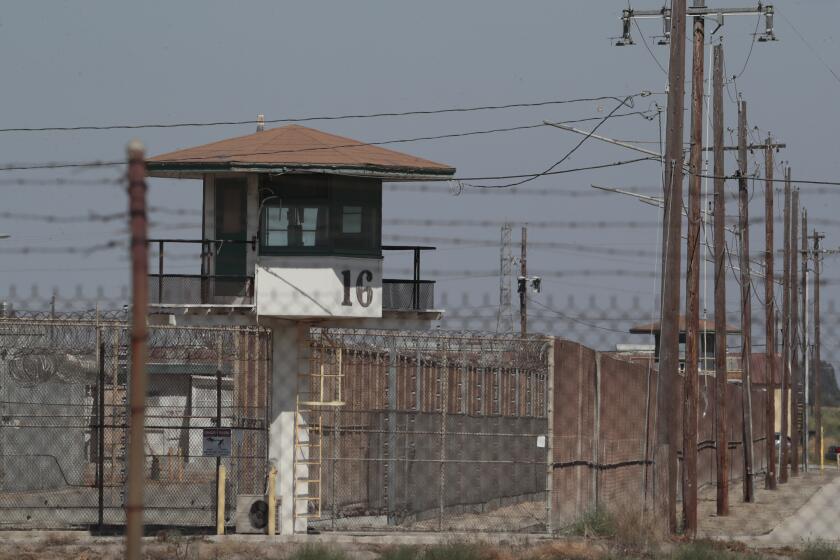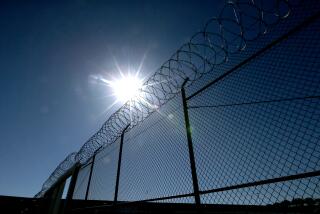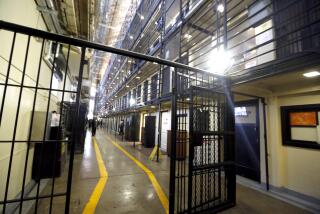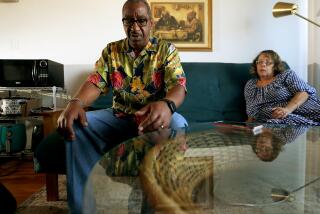California prisons must set aside space for COVID-19 patients, judge orders
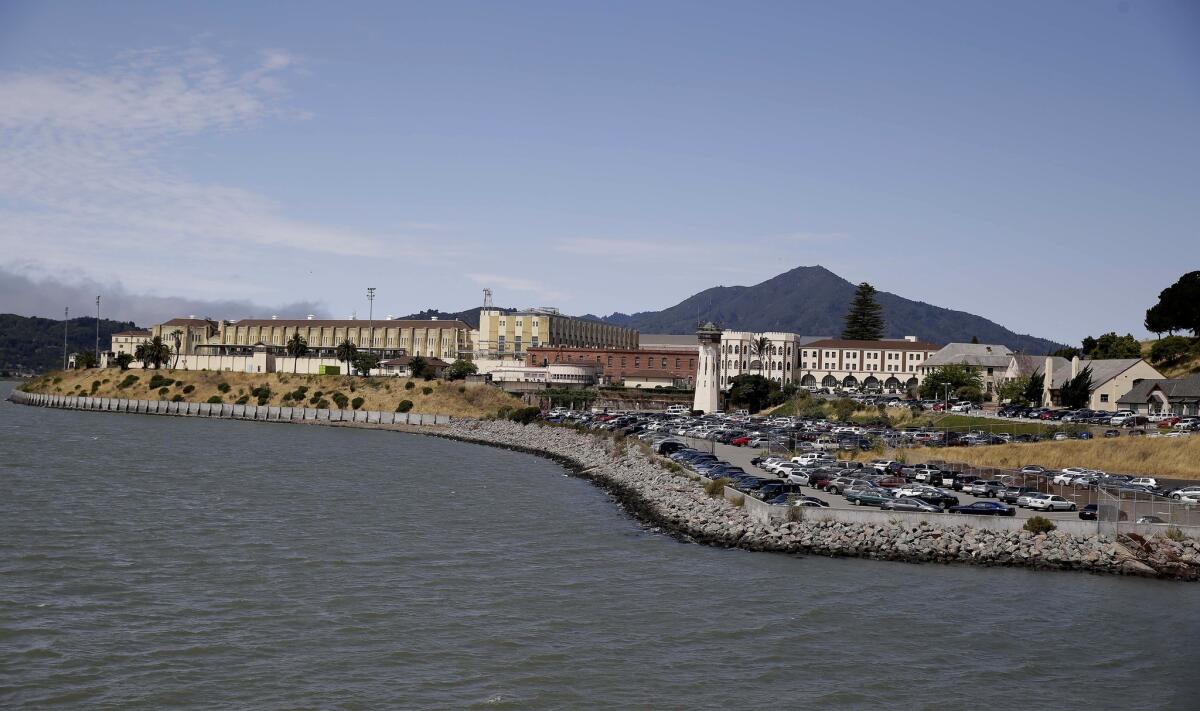
A federal judge overseeing litigation concerning the treatment of California inmates has ordered the state to set aside at least 100 beds at each of its 35 prisons to handle potential coronavirus outbreaks and prevent a repeat of the devastating spread at San Quentin.
U.S. District Judge Jon Tigar on Wednesday ordered the California Department of Corrections and Rehabilitation to identify space at 30 of its facilities that can be used to isolate prisoners who test positive for the virus.
The state must give inmate lawyers and federal receiver J. Clark Kelso — who was appointed by the court to protect inmates’ medical rights and had previously pushed for more space for prisoners to be isolated — a list of available accommodations by next week. Within two weeks, the remaining five prisons also must identify space.
“No one disputes that setting aside space for isolation and quarantine in the event of an outbreak is necessary,” Tigar said in the order.
The judge implemented what he describes as a modified version of a proposal from lawyers representing inmates.
“Plaintiffs’ expert, for example, states that ‘[p]eople with confirmed cases or who have symptoms of the virus must be separated from those in quarantine as suspected cases, and both groups must be separated from people who are asymptomatic and not suspected of infection. Without adequate space to accomplish this separation, minor outbreaks can quickly flare up to a disastrous level,’ ” Tigar said.
He gave the state until early September to complete any needed work.
Four prisons have already seen major COVID-19 outbreaks, and the judge noted that without action, other outbreaks could occur elsewhere. Tigar has become a major decision maker in how California prisons are handling the pandemic.
More than 7,200 inmates have tested positive statewide, and the disease has killed 42 inmates — including 15 at San Quentin State Prison and 19 at the California Institution for Men in Chino.
“This should have happened long ago,” said Michael W. Bien, the lead lawyer for inmates in a separate medical case. “Everyone agrees 100 beds is not really adequate.”
Bien said the important aspect is that Tigar is opening the door to many more beds and the potential release of inmates to create space.
Inmates said they felt helpless as coronavirus swept rapidly through California’s prisons.
Current and recently released inmates have described the fear as the virus rages and, one by one, prisoners have gotten sick and in some cases died. Several said they felt helpless because they could not easily practice social distancing or take other precautions.
As the crisis at San Quentin escalated, Gov. Gavin Newsom made a decision to release up to 8,000 inmates on top of 3,500 he had already set free. Tigar had first suggested the move after touring the prison with the governor at his side.
With about 50,000 medically vulnerable inmates behind bars, the Prison Law Office and other lawyers for inmates have repeatedly pushed for releases, but both Tigar and a three-judge federal panel have so far rejected motions seeking the mass release of inmates.
In his most recent order, Tigar told the state that space must be vacated as soon as practically possible.
“In planning for effective isolation and quarantine space, each institution must take into account unique factors that may impact where an incarcerated person can be housed. Examples of these factors include disability, mental health and restricted housing needs,” he said.
As the virus spread through the dormitory-like barracks at the Chino prison, the state struggled to keep inmates socially distanced and eventually put up tents outside and moved beds into other facilities.
Kelso pushed for pods of inmates to be established, but inmates said no arrangement provided any true distancing that would help prevent the spread of the illness.
Tigar approved a plan in May by the state and prisoner lawyers to transfer 700 of the most medically vulnerable inmates out of Chino. But some inmates had not been tested for more than three weeks before the move, Kelso said, and ultimately the transfer of 121 inmates to San Quentin and 66 to Corcoran State Prison launched the virus in those facilities.
More than 2,100 inmates have since tested positive at San Quentin, and more than a dozen have died, including eight on death row. In the wake of the outbreak, the state medical director overseeing prisoner health was removed from his position.
More to Read
Start your day right
Sign up for Essential California for news, features and recommendations from the L.A. Times and beyond in your inbox six days a week.
You may occasionally receive promotional content from the Los Angeles Times.
